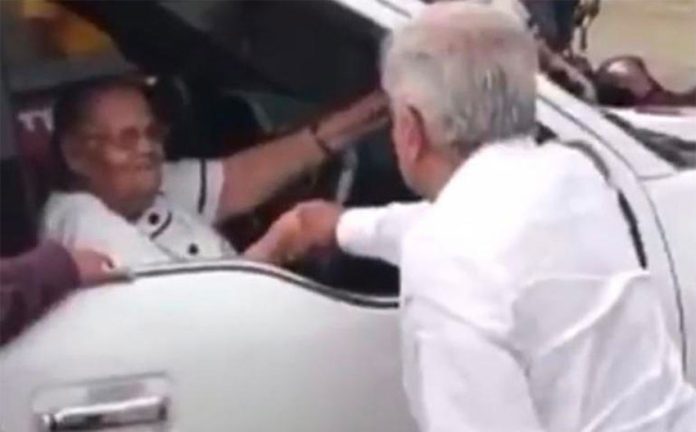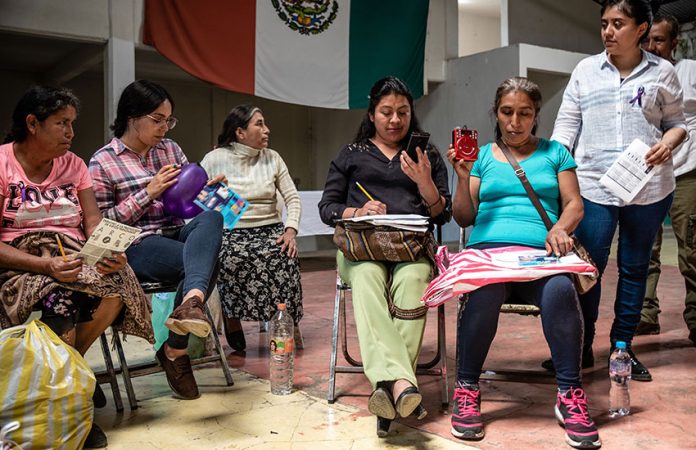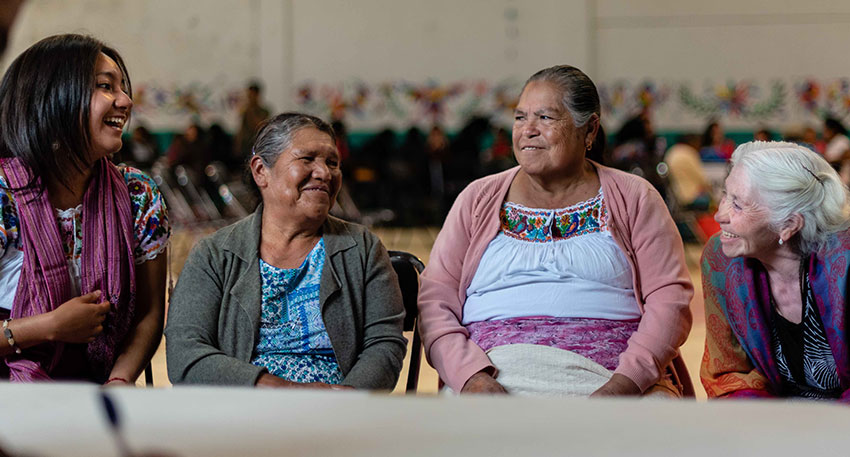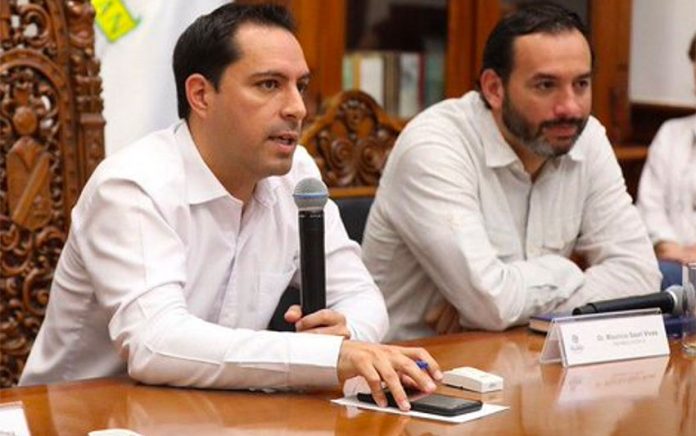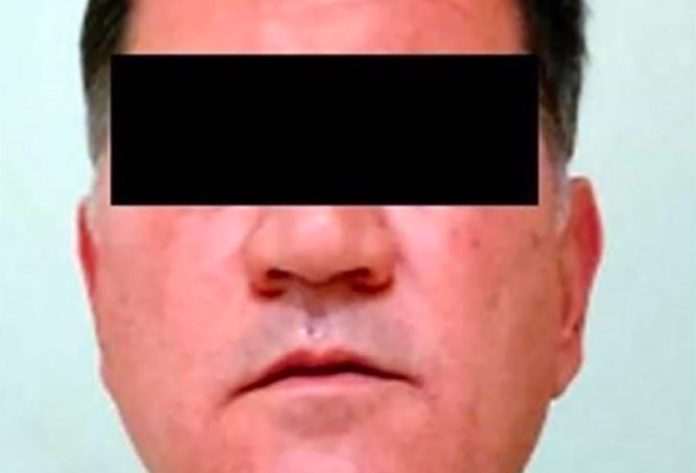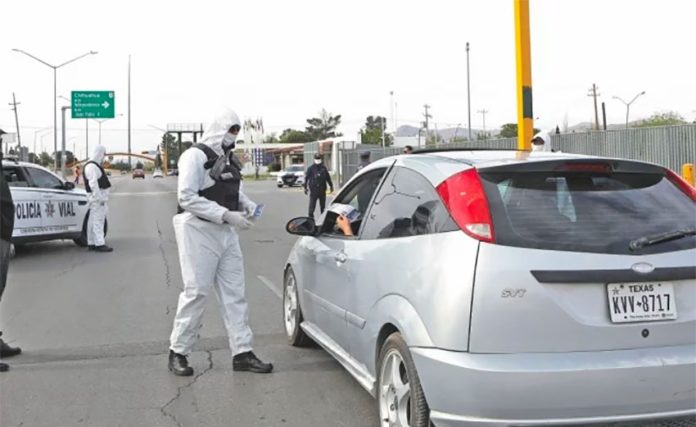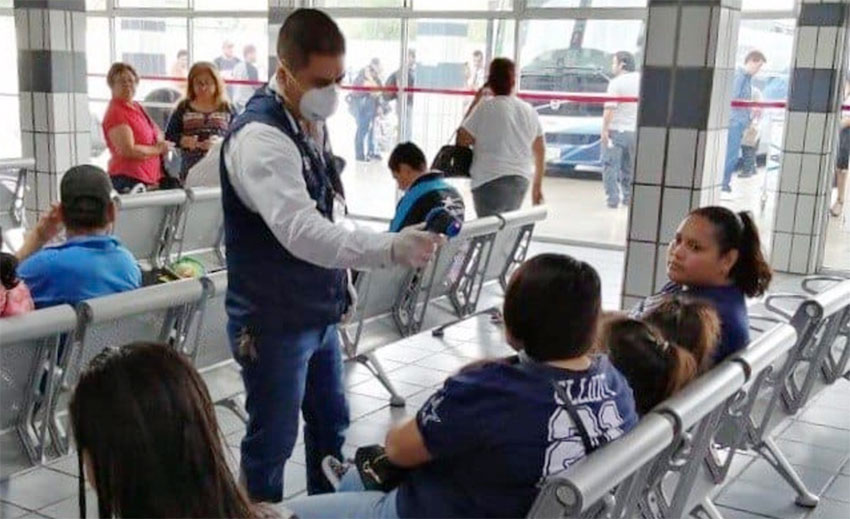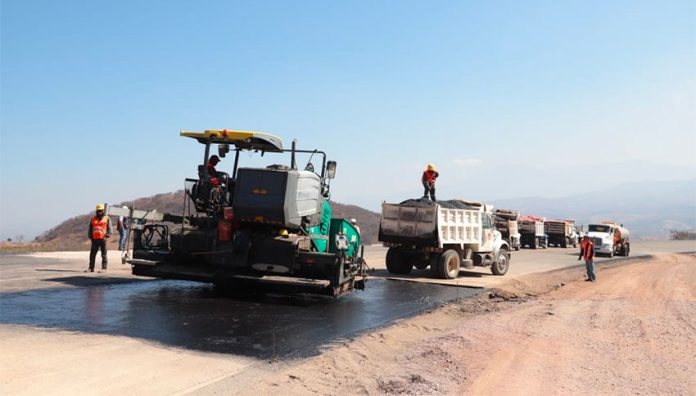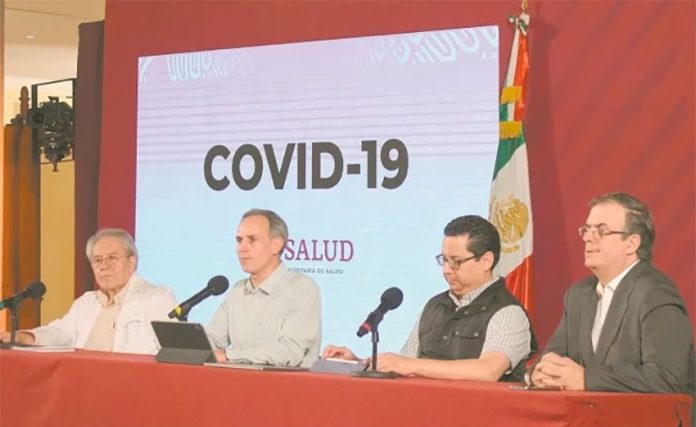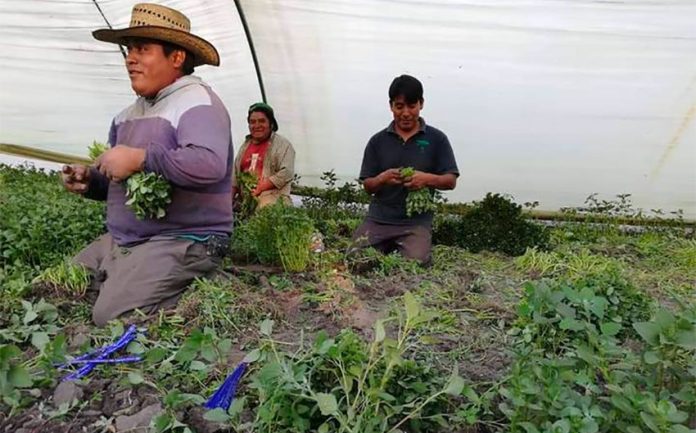President López Obrador claimed on Sunday that his political opponents – “the conservatives” – want him to self-isolate amid the growing coronavirus outbreak so that they can seize power.
The president’s claim came a day after Hidalgo Governor Omar Fayad, who attended López Obrador’s regular news conference on March 18, announced that he had tested positive for Covid-19. López Obrador leveled his accusation in a video message filmed on a hotel balcony in Culiacán, Sinaloa.
“Do you know what the conservatives want? For me to isolate myself [but] there would be no leadership [of the country] or there would be their leadership because in politics there are no power vacuums – the voids are filled and that’s what they want, for there to be a vacuum so that they can take control … in an irresponsible way,” he said.
López Obrador claimed that “the conservatives” – a term that he uses frequently to describe both his current political opponents and members of past “neoliberal” governments – want him off the political scene because they are angry about the changes his government is carrying out.
“As they dedicated themselves to stealing and looting and we said enough’s enough, they’re very angry,” he said.
The president also reiterated his message for people to stay at home as much as possible to limit the spread of Covid-19, although he declared that the disease “is not the plague.”
“Those of us who have an important function, a basic one, can go out to the street and work. … You can’t close a tortilla shop, doctors and nurses have to keep working, the police [too] so that there are no robberies,” López Obrador said, adding that he, as president, must also continue working.
The president, widely known as AMLO, reasserted his message later on Sunday at an event in Badiraguato, Sinaloa, home town of convicted drug trafficker Joaquín “El Chapo” Guzmán.
Speaking after he had inspected the progress made on the new Badiraguato-Guadalupe y Calvo highway, López Obrador said:
“I can’t put myself in quarantine … because we need to have leadership of the country. Not only do the conservatives want me to move out of the way and disappear, they want the fourth transformation that we are leading to fail.”
AMLO added that he would be prepared to be tested for Covid-19 but only if he had symptoms of the disease such as fever, a dry cough and body aches.
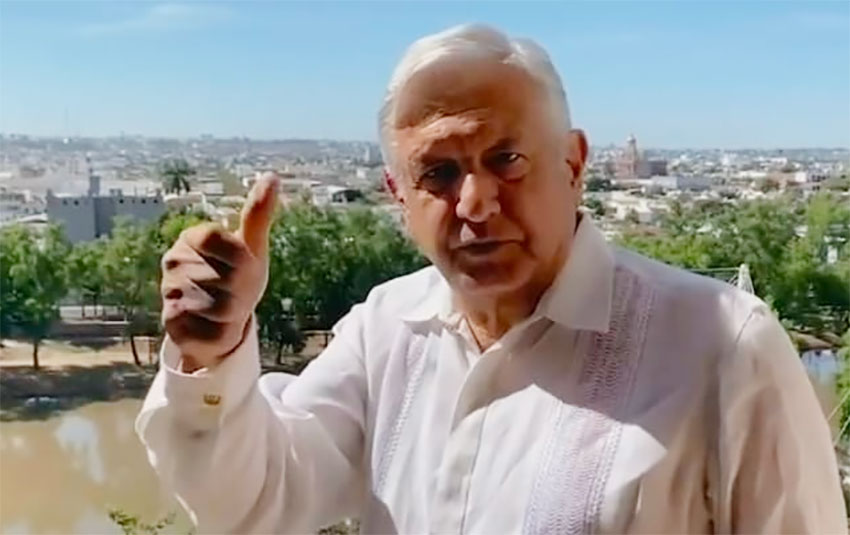
“If one doesn’t have those symptoms, there is no need to take the test: just [keep a] healthy distance [from each other],” he declared.
However, during his visit to Badiraguato, part of the Golden Triangle region that is notorious for opium poppy and marijuana cultivation, AMLO once again failed to observe his own government’s social distancing advice by shaking hands with nonagenarian María Consuelo Loera Pérez, El Chapo’s mother.
In a video first posted to social media, López Obrador is seen greeting the capo’s mother as she sits in the passenger seat of a stationary SUV on a dirt road. “Don’t get out,” the president tells Loera before extending his hand.
“I already got your letter,” he added during the brief encounter, which occurred on the birthday of El Chapo’s son Ovidio, who was released by federal security forces last October after his capture in Culiacán triggered a wave of violence in the city from the Sinaloa Cartel.
The main opposition political parties were quick to condemn López Obrador for greeting the former Sinaloa Cartel leader’s mother.
“President, your greeting of Chapo Guzmán’s mother angers all of us. It shows a lack of respect to the victims of drug trafficking and the [members of] the armed forces who risk their lives for our safety. It is urgent that you explain your links to the family and if there is a connection with the release of Ovidio,” National Action Party national president Marko Cortés wrote on Twitter.
The Institutional Revolutionary Party also called for an explanation from the president.
“We ask the president … [to provide] a clear explanation about the reasons for holding a meeting with the mother of a drug trafficker. It’s regrettable that while Mexicans are fighting against the coronavirus, he is maintaining an agenda that is not in favor of Mexicans,” the party said on its Twitter account.
López Obrador responded to the criticism at his regular news conference on Monday.
“Yes I greeted her. Our adversaries, the conservatives, made a fuss about it. … She’s a 92-year-old lady. I’ve already said that the fatal plague is corruption not a senior citizen who deserves my full respect regardless of who her son is,” he said.
AMLO also said that he would make public the letter he received from Loera.
“I’ll ask the lady to understand that we have nothing to hide. There is nothing that could embarrass her or me. She has every right to defend her son as a mother and I have the obligation to listen to all Mexicans.”
Source: El Universal (sp), Reforma (sp), Milenio (sp)
